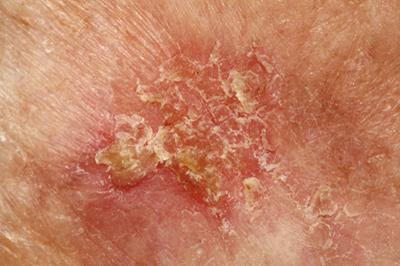
What Is Squamous Cell Carcinoma?
Squamous cell carcinoma refers to a specific kind of skin cancer – one that originates in the squamous cells located on the outermost layer of the skin’s epidermis. If you live or work in the Ocoee & Kissimmee, FL areas of the Sunshine State, contact Dr. Clifford Lober for additional information on diagnosis and treatment options for squamous cell carcinoma (SCC).
What Is Squamous Cell Carcinoma?
Squamous cell carcinoma is recognized as the second most common type of skin cancer (only basal cell carcinoma occurs more often), and typically, SCC is the result of extensive and prolonged UV radiation exposure from either the sun or a tanning salon.
Squamous Cell Carcinoma Key Features
SCC often develops as a skin lesion characterized as red, scaly, and often elevated. While it can look like a wart, SCC is usually a rough skin patch that simply won’t heal.
Risk Factors for Squamous Cell Carcinoma
In addition to repeated and extensive UV radiation exposure, other risk factors for squamous cell carcinoma include –
- Being fair skinned
- Having light eyes/hair
- A history of repeated sunburns, inflammation, or skin injury
- Exposure to harmful, toxic chemicals
Locations of SCC Development
Squamous cell carcinoma is most prone to development on any part of your body - face, scalp, chest, backs of hands, arms, etc., that is sun-exposed, although it can occur, for example, inside the mouth and other areas. While SCC is typically a localized event – especially if caught early, it can spread (metastasize) to other body parts if not treated or the cancer progresses to a more advanced state.
Dermatological Treatment Options
Treatment options for squamous cell carcinoma depend on the following factors –
- The location and size of the cancer.
- The stage of the cancer.
Treatment options vary and are tailored or customized to meet the needs of each individual patient.
Prevention is the Smartest Squamous Cell Carcinoma Avoidance Strategy
In addition to performing a routine self-exam, preventing SCC means avoiding extensive sun exposure. Other suggestions for preventing this common form of skin cancer include –
- Using any broad-spectrum sunscreen (with a minimum SPF of 30) when planning to spend time in the sun
- Staying in shaded areas during the day’s peak sun hours
- Choosing protective clothing (i.e., hats, sunglasses, etc.)
- Staying away from tanning salons
Contact Our Leading Ocoee & Kissimmee, FL Dermatologist Today
Because early detection and treatment are so important with regard to squamous cell carcinoma, it is essential to consult with a dermatologist for a proper evaluation if you notice new or changing skin spots or growth. Dr. Lober or a member of our staff can be reached at the Kissimmee, FL, office by calling (407) 846-7166, or in Ocoee, FL, by calling (407) 656-9700, so call today.